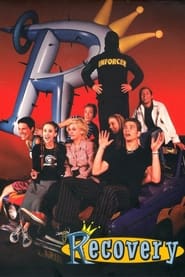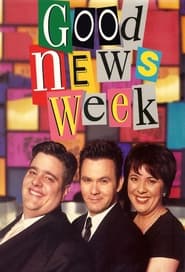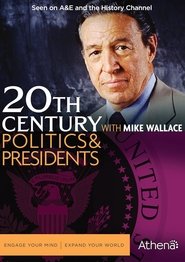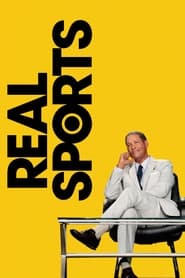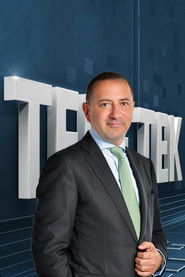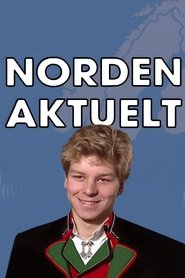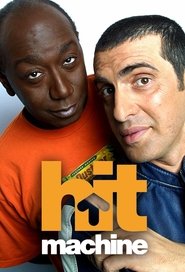New News TV Series on Pantaflix - Page 55
-
Recovery
1996
Recovery
1996
Recovery was a music and youth-oriented television series that was broadcast by ABC TV in Australia. The show was aired each Saturday morning from 9:00am to 12:00pm, following the overnight video clip program, Rage, and was broadcast from 20 April 1996 to 29 April 2000. -
Good News Week
1996
Good News Week
1996
star 8.8Good News Week was an Australian satirical panel game show hosted by Paul McDermott that aired from 19 April 1996 to 27 May 2000, and 11 February 2008 to 28 April 2012. The show's initial run aired on ABC until being bought by Network Ten in 1999. The show was revived for its second run when the 2007–2008 Writers Guild of America strike caused many of Network Ten's imported US programmes to cease production. Good News Week drew its comedy and satire from recent news stories, political figures, media organisations, and often, aspects of the show itself. The show opened with a monologue by McDermott relating to recent headlines, after which two teams of three panellists competed in recurring segments to gain points. The show has spawned three short-lived spin-off series, the ABC's Good News Weekend, Ten's GNW Night Lite and Ten's skit-based Good News World. -
Stateline
1996
Stateline
1996
Stateline was a television current affairs program produced by the Australian Broadcasting Corporation. It provided analysis of state and municipal politics as well as insight into state and regional issues in a current affairs journalistic style. The program was known for its interviews with politicians, and for its coverage of important regional issues. The ABC announced in December 2010 that the state-based current affairs program Stateline would be folded into a new 7.30 brand from March 2011. The change saw 7.30 extended to five nights a week, although Friday editions continue to be presented locally and focus on state affairs. -
Discover Magazine
1996
Discover Magazine
1996
star 8Discover Magazine is a 1992-2000 documentary television series that aired on the Disney Channel from 1992-1994 and then on The Science Channel from 1996-2000. The series is named after the magazine of the same name, Discover Magazine. The Disney Channel series was narrated by actor Joseph Campanella. The Science Channel series was hosted by Peter DeMeo from 1996-1998. The series was nominated for an Emmy Award for "Outstanding Informational Series" in 1996, 1997 for "Outstanding Non-Fiction Series", and 1 other time The series was created by producer-director Les Guthman at the Walt Disney Company in 1991, after Mr. Guthman licensed the television rights to Discover Magazine from Family Media in 1990. Mr. Guthman produced the series for two seasons on The Disney Channel, 1992-1994, and then working with Disney President and CEO Frank Wells sold the series to Discovery Communications in late 1994, after The Disney Channel abandoned its family-adult prime time schedule. -
Flash
1995
-
Hart van Nederland
1995
Hart van Nederland
1995
Hart van Nederland is a Dutch news and current affairs program from SBS 6 and consists of an early and a late edition. The broadcasts focus on national and regional news. -
SBT Repórter
1995
SBT Repórter
1995
-
Insight
1995
Insight
1995
star 6Australia's leading forum for debate and powerful first-person stories offering a unique perspective on the way we live. -
Futebol no Mundo
1995
Futebol no Mundo
1995
-
Real Sports with Bryant Gumbel
1995
star 7.3A monthly sports newsmagazine which was "spawned by the fact that sports have changed dramatically, that it's no longer just fun and games, and that what happens off the field, beyond the scores, is worthy of some serious reporting," according to Bryant Gumbel, the host. -
Teke Tek
1995
-
Norden aktuelt
1995
Norden aktuelt
1995
-
Capital
1995
Capital
1995
star 7Magazine that covers economic, financial, and social topics on a national or international level. -
Washington Journal
1995
Washington Journal
1995
Washington Journal is an American television series on the C-SPAN network in the format of a political call-in and interview program. The program features elected officials, government administrators and journalists as guests, answering questions from the hosts and from members of the general public, who call into the studio or submit questions via e-mail and social media. The three-hour program airs every day of the year beginning at 7 a.m. Eastern Time, except when special events or coverage of Congress preempts all or part of the program. The audio of the program also airs on WCSP-FM as a simulcast with the television broadcast. -
The Sunday Programme
1994
The Sunday Programme
1994
The Sunday Programme was GMTV's political programme. It launched on 16 October 1994 as a replacement for Sunday Best, which was GMTV's original Sunday morning magazine. The programme aired between 7:00 am and 8:00 am, just after The Sunday Review (a 60-minute signed review of the week's news). It was originally presented by Alastair Stewart, who left in 2001, and Steve Richards took over. From 1995 to 2001, the programme was called Alastair Stewart's Sunday Programme, but this was changed when Alastair left in 2001. In 2008, the programme was quietly axed and replaced with children's programming. -
The Sunday Review
1994
The Sunday Review
1994
The Sunday Review was a 60-minute signed review of the week's news, replacing Sunday Best on GMTV. A previous incarnation had been broadcasting since early 1993 under the name "Timeshift" -
Hit Machine
1994
Hit Machine
1994
 Netflix
Netflix
 Amazon Prime Video
Amazon Prime Video
 Apple iTunes
Apple iTunes
 Apple TV Plus
Apple TV Plus
 Disney Plus
Disney Plus
 Google Play Movies
Google Play Movies
 Paramount Plus
Paramount Plus
 Hulu
Hulu
 HBO Max
HBO Max
 YouTube
YouTube
 fuboTV
fuboTV
 Peacock
Peacock
 Peacock Premium
Peacock Premium
 Amazon Video
Amazon Video
 The Roku Channel
The Roku Channel
 AMC+
AMC+
 Kocowa
Kocowa
 Hoopla
Hoopla
 The CW
The CW
 Vudu
Vudu
 Starz
Starz
 Showtime
Showtime
 PBS
PBS
 Pantaflix
Pantaflix
 FXNow
FXNow
 Tubi TV
Tubi TV
 Kanopy
Kanopy
 Comedy Central
Comedy Central
 Crunchyroll
Crunchyroll
 Microsoft Store
Microsoft Store
 Redbox
Redbox
 Sun Nxt
Sun Nxt
 ABC
ABC
 DIRECTV
DIRECTV
 Crackle
Crackle
 Fandor
Fandor
 Plex
Plex
